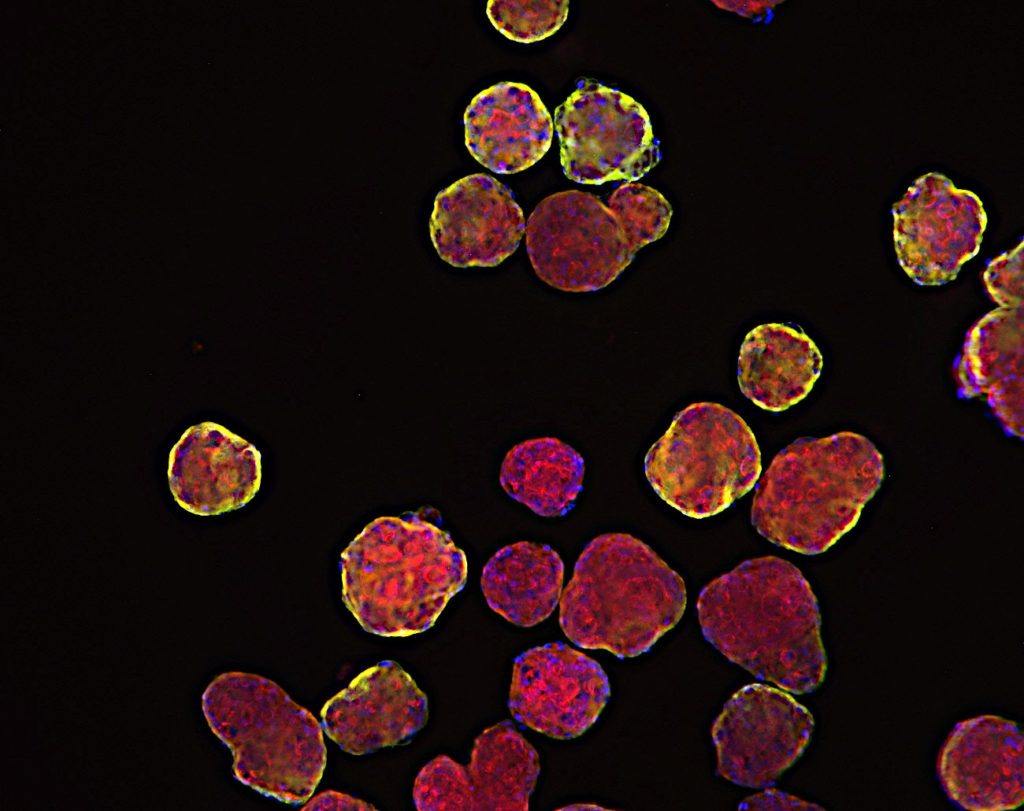
Cell-based assays in drug discovery and preclinical phase
Why use cell-based assays for your discovery programs?
Cell-based assays in drug discovery offer numerous advantages. They provide a biologically relevant platform for assessing potential drug candidates by mimicking human biology. These assays enable the modeling of diseases, capture complex cellular interactions, and help understand a drug’s mechanism of action. Additionally, they allow for high-throughput screening, toxicity assessment and contribute to reducing reliance on in vivo testing, ensuring data quality, and facilitating the evaluation of drug combinations.
Phenotypic screens, a subset of cell-based assays, are instrumental in identifying compounds that exhibit the desired therapeutic effects on cells, enhancing their significance in guiding drug development decisions.
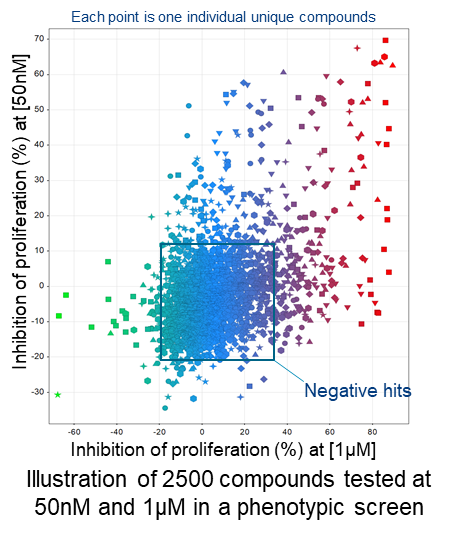
Cell-based assay platform at Oncodesign Services
Providing a direct link between in vitro and in vivo evaluation, Oncodesign Services’ platform is dedicated to select compounds and move them forward into the best preclinical protocol. We provide experimental studies which determine:
- Cell viability
- Cell proliferation
- Cell death
- Cell migration and invasion
- Immune cells assays – Tumor cell interaction
- T cell proliferation, anergy
- PBMCs, T cells activation (IFNg, IL2 secretion, ELISPOT…)
- DC activation, phagocytosis…
- Monocyte activation
- Macrophage polarization, phagocytosis
- Neutrophil phagocytosis
- T cells activation/signaling, macrophage activation
- Whole blood assay
- Resistances
- Clonogenicity
- ADCC/CDC
- Angiogenesis
- Cytotoxicity
- Apoptosis
- T cell proliferation, anergy
- PBMCs, T cells activation (IFNg, IL2 secretion, ELISPOT…)
- DC activation, phagocytosis…
- Monocyte activation
- Macrophage polarization, phagocytosis
- Neutrophil phagocytosis
- T cells activation/signaling, macrophage activation
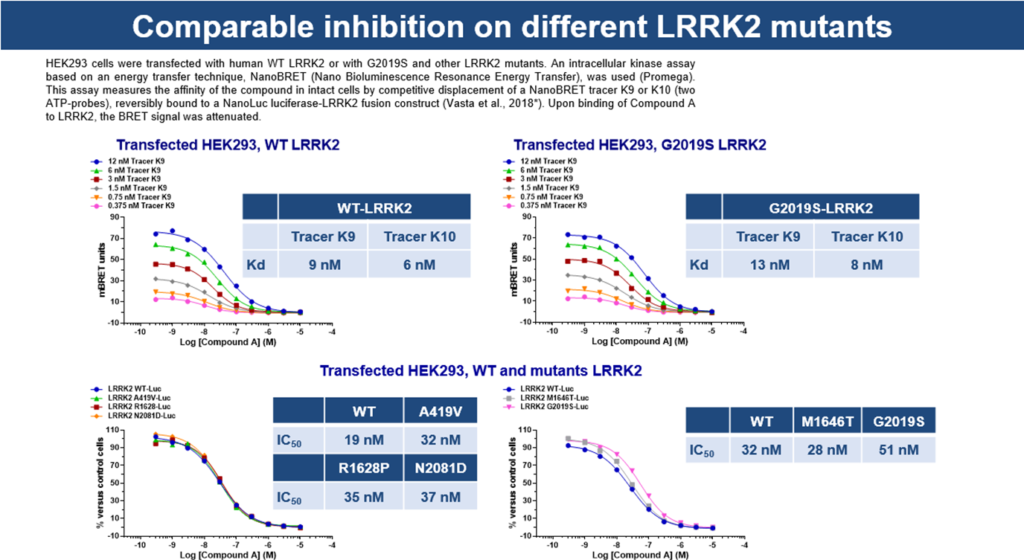
A large panel of cell lines
Oncodesign Services’ platform provides a large tumor bank with > 300 cell lines, covering 90% of human cancer. Cell assays can address tumor cell function, immune cell function or interaction of both cell types in a 2D or 3D format using a large variety of readouts. Tumor material can be sourced from cell lines or primary material of newly engineered models from various species (rodent, primate, human…). Immune cells can be sourced from healthy human donors, diseased donors or from our animal models.
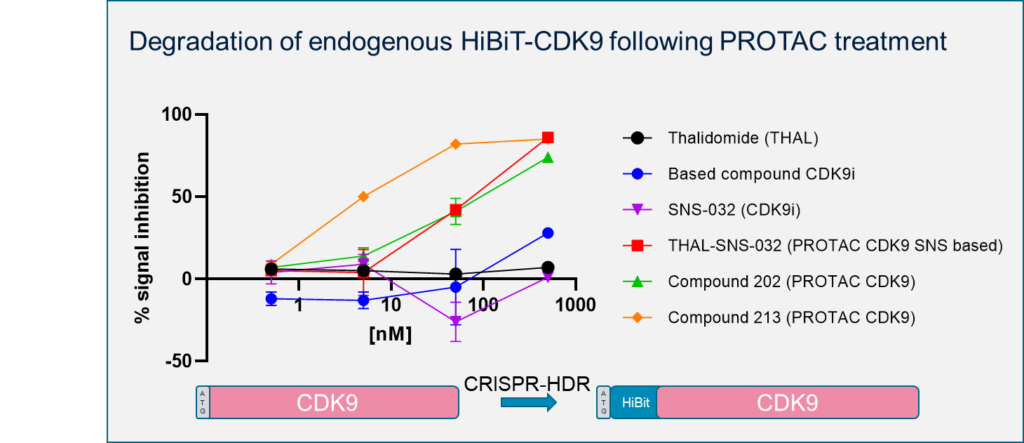
Degradation of endogenous HiBiT-CDK9 following PROTAC treatment
Cell engineering platform at Oncodesign Services
Cell engineering is essential in cell-based assays for drug discovery:
- Model Diseases: create disease-relevant cell lines for accurate testing.
- Validate Targets: confirm the role of drug targets.
- Signal Amplification: improve sensitivity with reporter genes.
- Personalized Models: develop patient-specific cell lines.
- Combat Drug Resistance: study and address resistance mechanisms.
- Phenotypic Screens: simplify compound identification in phenotypic screens.
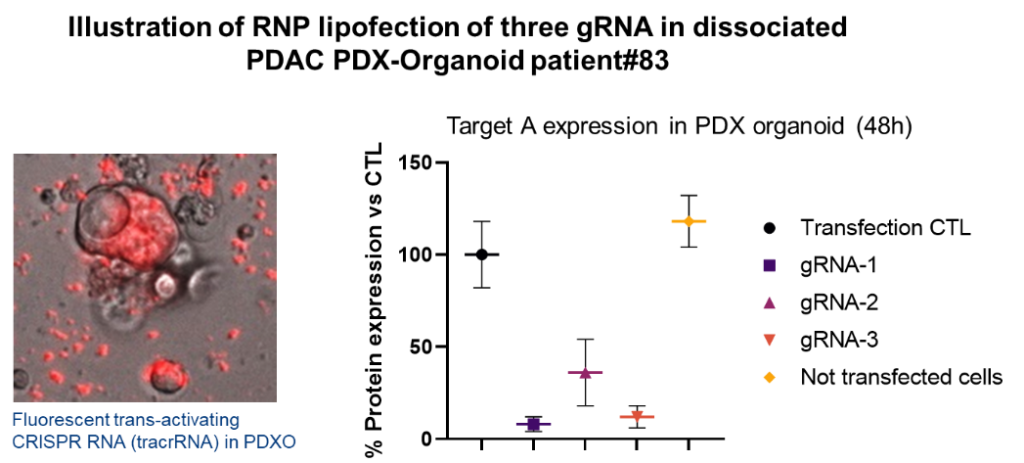
At Oncodesign Services, we employe a wide range of molecular biology tools, such as CRISPR-based techniques, fusion reporter gene design, a broad selection of expression vectors, etc., to craft the optimal cell-based assay tailored to your specific requirements.
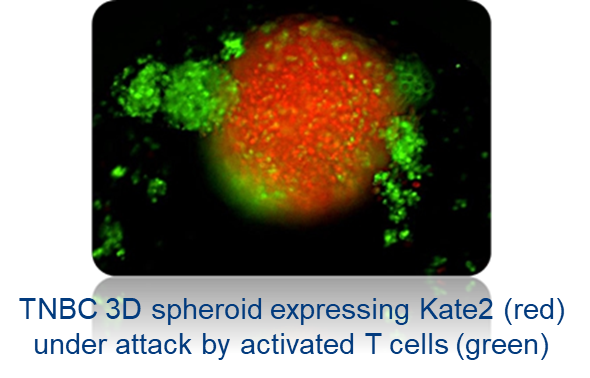
Oncodesign Services operate multi-disciplinary teams with over 30% of PhDs in laboratories based in Dijon, and Paris (France). Equipped with state-of-the-art equipment, we offer:
- BSL2 and BSL3 for pathogen handling
- Authorized for GMO use
- Fully CRISPR licensed
- Authorized for human tissue derivatives use
- Registered biological resource center
- Radionuclide lab for in vitro assays


